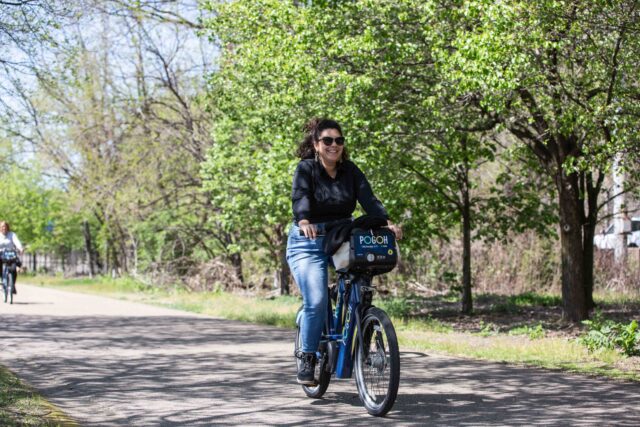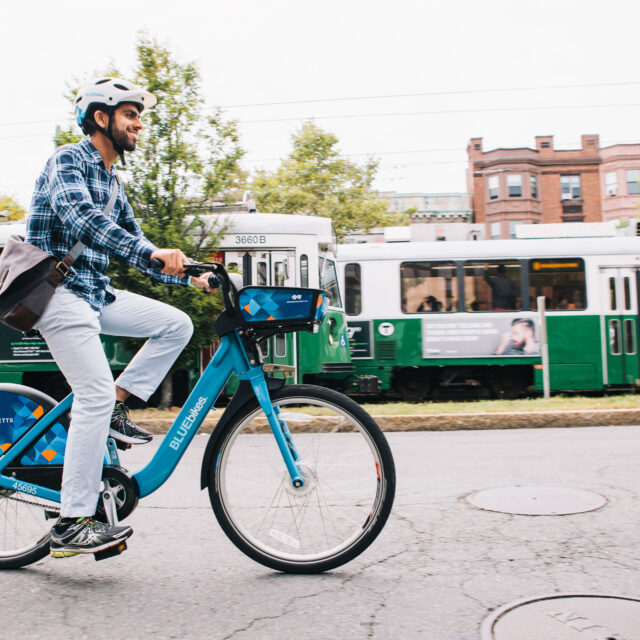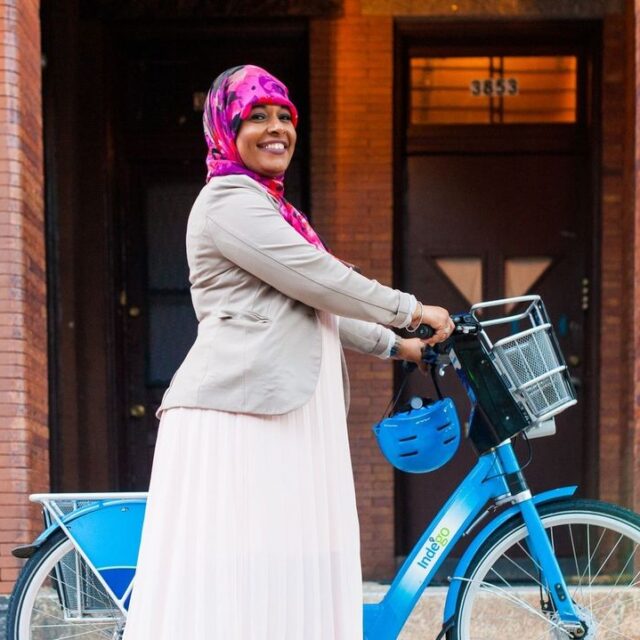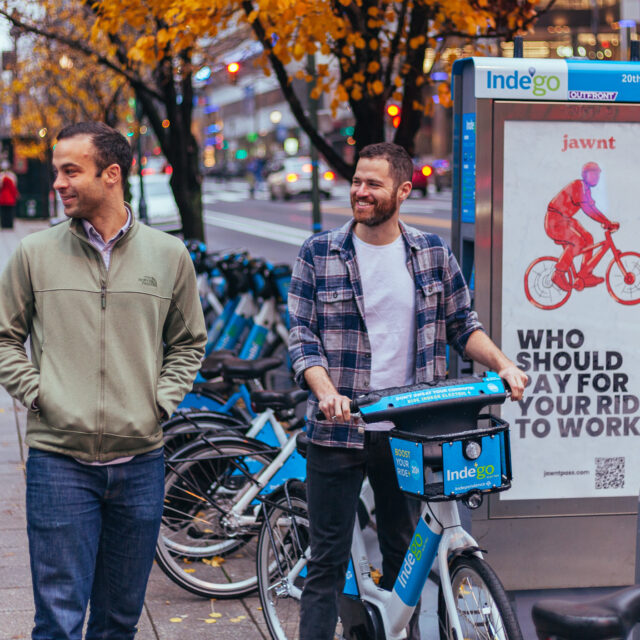Pittsburgh’s City Employees Are Getting a Bike Share Benefit
by Kiran Herbert, Communications Manager
August 1, 2023
Some 3,000 workers for the City of Pittsburgh will soon have access to unlimited, 30-minute, POGOH bike share rides.

In 2021, Bike Share Pittsburgh, the nonprofit organization that oversees the POGOH bike share system, launched a yearlong pilot with the City of Pittsburgh’s Department of Mobility and Infrastructure. For that test case, Bike Share Pittsburgh charged the department $5,000, and in exchange, all employees gained access to a standard corporate membership with unlimited, 30-minute rides.
“We made the case to say this is something that should be available for all city employees,” says David White, executive director at Bike Share Pittsburgh. “The city was able to find room in their personnel and human resource budget to pay for it.”
While the data from the pilot wasn’t the most compelling (adoption wasn’t universal), White was able to push for an organization-wide program by lowering the cost. Bike Share Pittsburgh won’t be making a lot of money off of the deal but the team still felt that it was an important benefit for the city to get behind.
“It helps create public awareness about bike share and make a statement that our city government prioritizes biking and walking,” says White.
It helped that City Council person Bobby Wilson championed the cause, authoring and introducing the legislation to formalize a partnership between Bike Share Pittsburgh and the city. Wilson recognized the need and lobbied for this benefit, which passed in City Council with a strong majority of 8-1.
According to White, the process of pushing through a benefit like this is the same whether the entity is a large corporation or a local government. “With any partner we’re trying to get on board, it works best if you have one internal champion that helps socialize the idea and move it from department to department,” says White. ”Sometimes [funding] comes from a single department’s budget and sometimes it’s enterprise-wide. We never know where it lives, so you really need that one person.”
Bike Share Pittsburgh typically works with jawnt — which operates a transit benefits platform for employers — on the corporate partner recruitment side (current clients include Google and Allegheny Health Network). Jawnt’s mission is to create a more equitable transportation space and for the company, incorporating bike share into the suite of benefits it offers just makes sense. The POGOH’s Corporate Membership program allows any Pittsburgh employer to provide annual bike share memberships to their employees at a discounted rate of $95 per participating employee. It includes other benefits like a Lunch & Learn bike share workshop and an annual group ride.
“Offering bike share as a benefit is not only a wonderful commuter incentive, but it’s also a health and wellness benefit,” says Erin Potts, director of marketing and community outreach at POGOH. “Parking in Downtown and Oakland can be such an expensive headache, and we’re excited to partner with Jawnt and get more people accomplishing short trips by bike in Pittsburgh.”
For the City of Pittsburgh partnership, while the driving incentive and resulting benefits are the same, Jawnt wasn’t involved in brokering the deal. That responsibility fell to White, who already had a long history with the City Council, as well as the Department of Mobility and Infrastructure.
“Every station that we install needs the signature of the council person whose district it’s in,” explains White. “Because of that, it’s forced us to develop strong relationships with City Council — we work closely and interact with them on station expansion.”
Because of these strong relationships, when it came time to vote, the council was already familiar with bike share and its myriad of benefits. The only resistance came from the one City Council person whose district doesn’t have a bike share station in it. Without a clear benefit for residents of that district, it was understandably a hard initiative to support.
“That was a wake-up that we should be in every corner of the city, like Divvy” says White, referring to Chicago’s bike share system, which has committed to expanding to all of the city’s 50 wards. “Eight years ago, people were skeptical and resistant to bike share taking up space at the curb and now they’re outspoken in advocating for more stations.”
For those council members whose constituents have easy access to bike share, making the program free for city employees was an easy sell. The change will open up bike share to 3,000 employees, all of whom live within Pittsburgh’s city limits and are considered public servants, often taking on challenging work for the benefit of the greater good.
“Anything local government can do to make their employees happier or make it easier to get to work is a great idea,” says White. “This benefit can really sweeten the pot for people who could be making more money in the private sector.”
Like the initial pilot, come August, all employees will receive a free annual bike share membership with unlimited, 30-minute rides (memberships also include rides on the system’s electric-assist bikes). Since every city employee shares a common email domain, no code is needed to register — folks will simply sign up using their work email. Still, employees will need to connect a valid form of payment in order to ensure the city isn’t responsible for any overage charges.
Once the program is rolled out, White hopes to see an increase in ridership, especially downtown where many government employees work. Pogoh is currently in the middle of an expansion — 22 new stations will go in this year, bringing the system’s footprint to 60 stations total and some 600 bikes. As bike share expands to more and more areas, White hopes that more and more employers will adopt bike share — alongside transit — as a part of their comprehensive benefits package.
“When we presented this proposal to City Council, many members asked, ‘Why can’t the city also pay for bus passes for everyone?’” says White. “Obviously, we’re big supporters of that, but we don’t have much control over it. That’s clearly the direction I’d like to see our city go.
The Better Bike Share Partnership is funded by The JPB Foundation as a collaboration between the City of Philadelphia, the National Association of City Transportation Officials (NACTO), and the PeopleForBikes Foundation to build equitable and replicable bike share systems. Follow us on LinkedIn, Facebook, Twitter, and Instagram, or sign up for our weekly newsletter. Have a question or a story idea? Email kiran@peopleforbikes.org.



